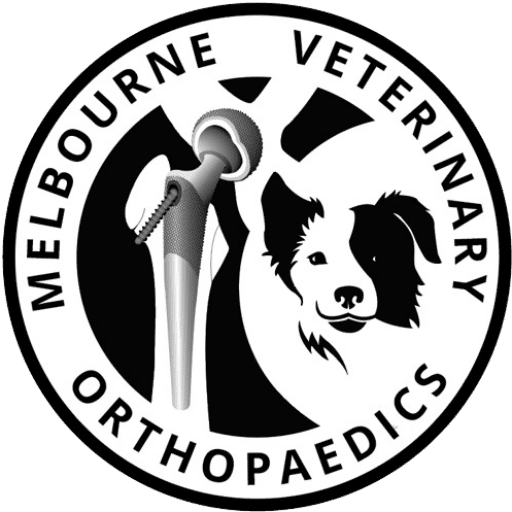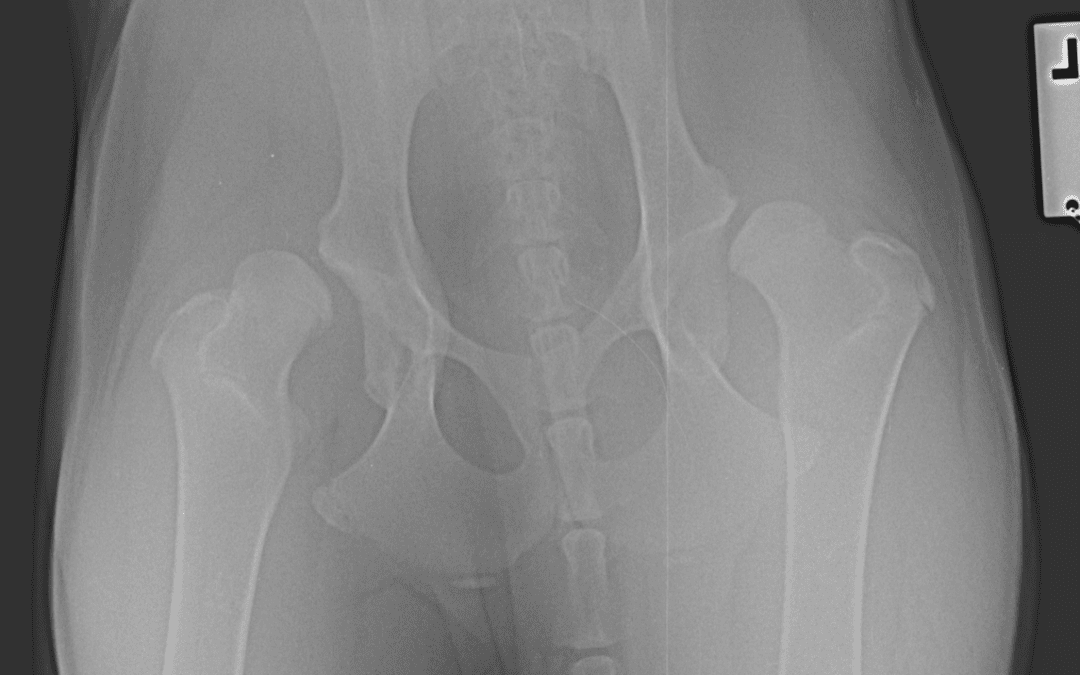Hip dysplasia is a genetic condition where the hip joint doesn’t fit properly into the hip socket. This malformation can lead to joint instability, arthritis, pain, and decreased mobility. It’s common in larger breeds but can affect any dog.
Signs of Hip Dysplasia:
- Difficulty getting up or lying down
- Reluctance to walk, run, or jump
- Stiffness after resting
- Decreased range of motion
- Noticeable pain or discomfort, especially during exercise
- A “bunny hopping” gait, where both hind legs move together
When surgery is needed
Surgery may be considered based on the severity of the condition and the age of your dog. Here are some general guidelines:
- Severe Cases: If your pup has severe hip dysplasia that leads to significant pain and reduced quality of life, surgical intervention may be necessary.
- Young Dogs: For younger dogs, especially those under 2 years old with hip dysplasia, surgical options like a femoral head ostectomy (FHO) or total hip replacement (THR) may be recommended to alleviate pain and improve function.
- Mild to Moderate Cases: In cases where the dysplasia is mild to moderate and pain can be managed with medication, weight management, and physical therapy, surgery might not be immediately necessary. However, regular monitoring by a veterinarian is important.
- Age and Activity Level: The age of your dog and their activity level will also influence the decision. Older dogs with arthritis may benefit more from pain management and less invasive treatments, while younger, more active dogs may be better candidates for surgical options.
Consultation with a veterinarian
It’s essential to consult with your veterinarian or a veterinary orthopedic specialist for an accurate diagnosis and treatment plan tailored to your pup’s specific condition. They can perform diagnostic imaging, such as X-rays, to assess the severity of the dysplasia and recommend the best course of action. Once your vet has taken note of your pet’s condition, taken the appropriate x-rays and tests, they will refer you to a specialist surgeon like Dr Chris Preston.

